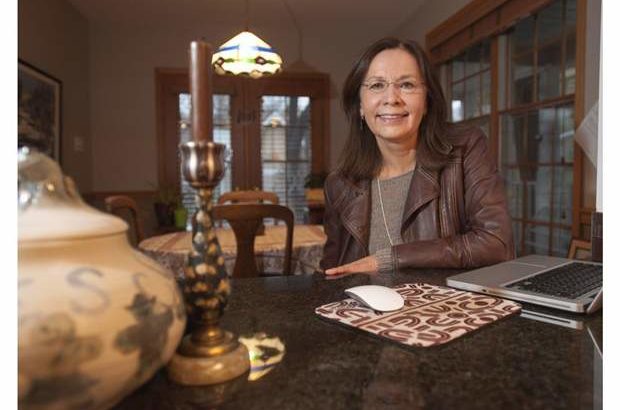Rita Bouvier poses for a photo in her home in November 2013. An award-winning author, educator and researcher, Bouvier spoke about her time at the 2017 World Indigenous Peoples Conference on Education, which ran from July 24 to July 28 in Toronto Ont. She said the gathering was a chance for community members, educators and researchers to come together and discuss the future of Indigenous education in Canada and around the world, looking for answers through traditional knowledge and intellect.
Educators, academics, community members and researchers gathered in Toronto this week for the World Indigenous Peoples Conference on Education (WIPCE) hosted by TAP Resources and Six Nations Polytechnic.
Held every three years, the conference is a chance for stakeholders from around the world to gather and discuss the future of Indigenous education while working to address some of the major issues affecting Indigenous peoples on a local, regional and global level through traditional intellect.
Award-winning Metis educator, researcher, poet and activist Rita Bouvier, originally from Ile à la Crosse, has attended the conference nine times over the course of her career. She spoke with Morgan Modjeski about her time at the conference, both as a contributor and student.
This interview has been condensed and edited.
Q: What were some of the main issues that these intellectuals and academics were discussing?
A: “They’re not all intellectuals and academics. These are people who are working in various positions in the education system and in the community that supports the education systems. So we really have a diversity of roles and responsibilities that are reflected with the people attending … It’s a diversity of people that are working to support the education of our youth.”
Q: What’s the importance of having that melding of the minds between those working on the front lines in schools and those working on the front lines in a research and community capacity?
A: “We’re all trying to do the same thing … We want our youth to have some success, but we really feel that can only happen by strengthening the identity of our youth, to begin to understand who they are as human beings … and that they have a place in this world and they have a purpose. And we’re doing that by centring their story and their lives within their own traditions. But in doing that, Indigenous education, if I might call it that, and Indigenous knowledge can speak to everyone.
“A lot of that knowledge is carried in our languages and in the ceremonies and in the teachings that are passed on in many of the communities to this day … The purposes of education for many of our communities is not just individual success, it’s about the responsibility we have to the earth and to the natural world around us and the importance of us being in a relationship to that environment.”
Q: How has the conference and the work that the conference is focusing on changed in your time attending?
A: “Thirty years ago, we started out really being very unhappy. The kind of information that was being put out there, in particular by research, as academia, in some part, has produced some that of knowledge, which … essentially stereotyped, essentialized and romanticized who we were as a people, and all of us 30 years ago were challenging that western framework and we have come a long way. … This is some of the work that’s going on in Ontario right now, but the session that I just went to, where one particular community is sharing how they’ve created Indigenous knowledge and traditions — intellectual traditions — as a foundation for their curriculum, and still meet the curricular objectives and outcomes for the province, and it’s incredible. So it’s doable.”
Q: What is it like being part of the collective voice that’s at WIPCE from Saskatchewan?
A: “I have a responsibility to give back to my community and I have the privilege of having gained a lot of knowledge and experience in the work that I’ve done and I also believe that I have certain gifts, that I bring a certain passion to it, and so I feel very privileged to be among I want to say my peers and to have an opportunity to share stories with them.
“Not only about the challenges we face in our respective regions and in our respective countries, but also to celebrate the resilience, that despite everything else, we are still working so hard to centre what is important to us and that knowledge that has been passed on to us. And we feel that if people open their hearts, they can also benefit from the intellectual traditions of our community and to address … some of the challenges that face us globally and I’m talking about the environment.
“I’m talking about the fact that oftentimes, we seem to centre our whole educational endeavour around economic purposes, but that isn’t the ‘end all be all’ — we also have an obligation to create a world that is sustainable for future generations. That’s our responsibility, it isn’t to accumulate more and more.”
Q: If you could relay one lesson that you learned from WIPCE to the people of Saskatchewan, what would it be?
A: “Work with our communities, at the local, regional, provincial, national level. Work with us … The relationships that were established at the beginning of this country need to be honoured.”
—This story has been updated.
Source:
http://www.leaderpost.com/business/metis+educator+author+researcher+rita+bouvier+reflects+2017+world/13957858/story.html






 Users Today : 27
Users Today : 27 Total Users : 35460044
Total Users : 35460044 Views Today : 37
Views Today : 37 Total views : 3418668
Total views : 3418668